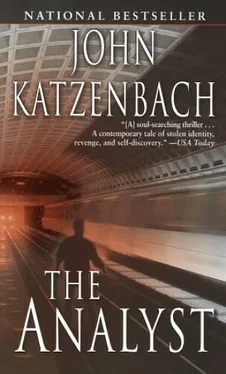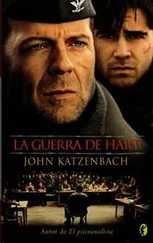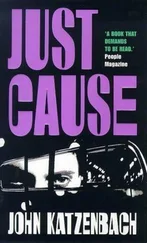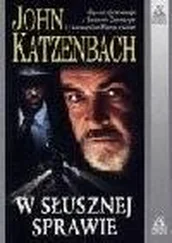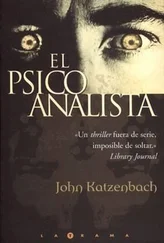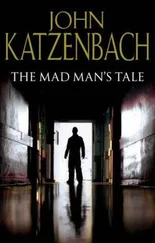“Doctor Starks,” the man said slowly, almost reluctantly, as he identified himself. “I apologize for leaving a message on your machine during your vacation. I don’t mean to disrupt your holiday, but this morning’s mail brought a very disturbing letter.”
Ricky inhaled sharply. The voice of the patient continued slowly.
“The letter was a copy of a complaint filed against you with the state medical ethics board and the New York Psychoanalytic Society. I recognize the anonymous nature of the allegation makes it extremely hard to counter. The copy of the letter, incidentally, was mailed to me at my home, not my office, and lacked any return address or any other identifying characteristics.”
Again the patient hesitated.
“I have been placed in a substantial conflict of interest. There is little doubt in my mind that the complaint is a worthy news story, and should be turned over to someone on our city reporting staff for additional investigation. On the other hand, this act would obviously severely compromise our relationship. I am troubled deeply by the allegations, which I presume you deny…”
The patient seemed to catch his breath, then added with a touch of bitter anger, “… Everyone always denies wrongdoing. ‘I didn’t do it, I didn’t do it, I didn’t do it… ‘ Until they’re so caught by events and trapped by circumstances that they can no longer lie. Presidents. Government officials. Businessmen. Doctors. Scoutmasters and Little League coaches, for Christ’s sake. Then they finally are forced to tell the truth and expect everyone to understand they had to lie, earlier, as if it’s okay to keep lying until you’re so goddamn caught you can’t lie effectively anymore…”
The patient paused again, then hung up the phone. The message seemed sliced off, short of what he wanted Ricky to respond to.
Ricky’s hand shook slightly as he again pressed the Play button on the machine. The next message was merely a woman sobbing. Unfortunately, he recognized the noise, and knew it was another longtime patient. She, too, he guessed, had received a copy of the letter. He quickly fast-forwarded the tape. The two remaining messages were also from patients. One, a prominent choreographer for Broadway productions, sputtered with barely repressed rage. The other, a portrait photographer of some note, seemed as much confused as she was distraught.
Despair flooded him. Perhaps for the first time in his professional life, he didn’t know what to say to his own patients. The others who hadn’t yet called, he suspected, hadn’t opened their mail yet.
One of the key elements to psychoanalysis is the curious relationship between the patient and the therapist, where the patient pours out every intimate detail of his life to a person who doesn’t reciprocate and very rarely reacts to even the most provocative information. In the child’s game Truth or Dare, trust is established by shared risk. You tell me, I’ll tell you. You show me yours, I’ll show you mine. Psychoanalysis skews this relationship by making it utterly one-sided. Indeed, Ricky knew, the patients’ fascination with who Ricky was, what he thought and felt, how he reacted, were all dynamics of significance and were all part of the great process of transference that took place in his office, where sitting silently behind his patients’ heads as they lay with their feet in the air on the couch, he symbolically became many things, but mostly, he came to symbolize to each of them something different and something troubling, and so, by taking on these different roles for each patient he could lead each of them through their problems. His silence would come to psychologically mimic one patient’s mother, another’s father, a third’s boss. His silence would come to represent love and hate, anger and sadness. It could become loss, it could become rejection. In some respects, he understood,is a chameleon, changing color against the surface of every object he touches.
He didn’t return any of the phone calls from his patients, and, by evening, all had called. The editor from the Times was right, he thought. We live in a society that has reformed the entire concept of the denial. Now the denial carries with it the presumption that it is merely a lie of convenience, to be recalled and subsequently tailored at some later point, when an acceptable truth has been negotiated.
Hours every day that totaled weeks that became months and turned into years with each of the patients had been savaged by a single well-constructed lie. He didn’t know how to respond to his patients, whether he should respond at all. The clinician within him understood that examining each patient’s response to the allegations would be fruitful, but at the same time, that seemed ineffectual.
For dinner that evening he made himself chicken soup out of a can.
Spooning the scalding mixture into his mouth, he wondered whether some of the famed medicinal and restorative powers of the concoction would flow into his heart.
He understood that he was still lacking a plan of action. Some chart that he could follow. A diagnosis, followed by a course of treatment. Up to this point, Rumplestiltskin seemed to Ricky to be like some sort of insidious cancer, attacking different parts of his persona. He still needed to define an approach. The problem was, this went against his training. Had he been an oncologist, like the men who’d unsuccessfully treated his wife, or even a dentist who was able to see the decayed tooth and pluck it out, he would have done so. But Ricky’s training was far different. An analyst, although recognizing certain definable characteristics and syndromes, ultimately lets the patient invent the treatment, within the simple context of the process. Ricky was being crippled in his approach to Rumplestiltskin and his threats by the very nature that had stood him in such fine stead over so many years. The passivity that was a hallmark of his profession was suddenly dangerous.
He worried for the first time late that night that it might kill him.
In the morning, he crossed another day off Rumplestiltskin’s calendar and composed the following inquiry:
Searching high and looking fast,
inspecting all from twenty past.
Is this year right or wrong?
(Because of time, I have not long.)
And although it seems like such a bother,
am I hunting for R’s mother?
Ricky realized that he was stretching Rumplestiltskin’s rules, first by asking two questions instead of one, and not exactly framing them for a simple yes or no response as he’d been instructed. But he guessed that by using the same nursery school rhyme scheme that his tormentor did, Rumplestiltskin would be prompted to ignore the violation of the rules and might answer with slightly more detail. Ricky understood that in order to deduce who had ensnared him, he needed information. Much more information. He was under no illusion that Rumplestiltskin would give away some telltale bit of detail that would tell Ricky precisely where to look for him, or might actually instantly provide an avenue for a name, that could then be given to the authorities-if Ricky could figure out which authorities to contact. The man had planned out his adventure in revenge too precisely for that to happen quickly, Ricky thought. But an analyst is considered a scientist of the oblique and of the hidden. He should be expert at the hidden and concealed, Ricky thought, and if he was to find the answer to Rumplestiltskin’s real name, it would have to come from a slip that the man, no matter how intricately he had schemed, did not anticipate.
The lady at the Times who took the order for the single-column front-page ad seemed intrigued in a pleasant way by the rhyme. “This is unusual,” she said lightly. “Usually these are just happy fiftieth anniversary mom and dad ads, or else come-ons for some new product that someone wants to sell,” she said. “This seems different. What’s the occasion?” she asked.
Читать дальше
